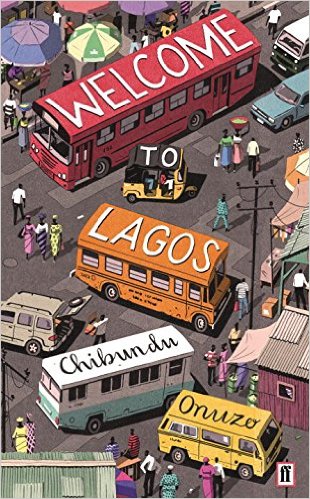Three strangers and two colleagues turned friends find themselves on a bus to Lagos.
The two friends are Yemi Oke and his army platoon commander, Chike Ameobi. The pair of them have deserted after refusing to take part in an ambush on a village.
Chike had not taken much notice of the lowest-ranking member of his platoon until he came upon him one day, crying.
‘Nah young girl. E no good,’ was all Yemi would say. There were others who felt the same about the woman shot for allegedly harbouring militants but the only protest he had heard voiced was from the runt of his platoon. Their friendship had begun then, an unequal one where he gave the orders and Yemi obeyed, but a friendship nonetheless, based on their mutual distaste for the Colonel. A treasonous friendship.

Yemi and Chike meet two of the others on their escape through the forest. They capture Fineboy, a teenager fighting for the militants, when they come across him urinating, an AK-47 slung over his shoulder. As they continue their walk towards the nearest city, a girl appears:
She was running, upon them and past them, straight into Fineboy, ploughing him to the ground. She struck him, with her elbows, with her hands, straddling him like a wrestler, her trousers fitted to slim legs, too thin surely to keep a man pinned under her weight. Fineboy cried out, in a tangled stream that was rising in pitch.
This is Isoken and it soon transpires that she’s been in the bush since her parents’ village was ambushed. The previous day, Fineboy and some of his comrades attempted to rape her.
On the bus, they meet the woman who will become the final member of their group; Oma has left her husband:
Her husband IK loved her, in the way you loved expensive shoes, to be polished and glossed but, at the end of the day, to be trodden on.
On arrival in the city, with nowhere else suitable to go, the five of them end up living together under a bridge where a community has sprung up out of necessity.
Two other characters are also introduced: Ahmed Bakare, founder of the Nigerian Journal, ‘Nigerian news, by Nigerian people, for Nigerian people’ and Chief Sandayo, the Honourable Minister of Education for the Federal Republic of Nigeria.
Ahmed’s mother wants him to get married but he’s focused on his newspaper. He wants to be ‘a brittle thorn in [the Nigerian establishment’s] buttock’. While Sandayo shows the reader how the establishment works.
Eventually, unexpected circumstances bring the five travellers into contact with Sandayo and then Ahmed. These circumstances leave them with a dilemma they never expected.
Onuzo explores ideas around morality – in war, in government, in journalism – and asks whether there are ever circumstances where actions which might be usually be viewed as wrong are acceptable. She also looks at Western journalism and its role in the misunderstanding of Nigeria as an established BBC interviewer flies in, sees what he sees and flies out again. All of these themes contain some scathing, although subtlety done, commentary on class too. Onuzo asks whether you should use your privilege for good and what form that might take.
The weak point of the book is the initial set-up which contrives to get five quite disparate characters to Lagos and living together in order to provide five different views on the dilemma they’re faced with. If you can forgive this, Welcome to Lagos is an engaging, thoughtful look at how society works and how it is viewed by both its people and outsiders.
Thanks to Faber & Faber for the review copy.

Interesting review, Naomi – I’ve been eyeing this one up for a while. I particularly taken with the idea of the journalism strand.
Like your new header! I spy lots of favourites.
LikeLiked by 1 person
The journalism strand is what makes it really interesting – it brings a different angle to it, particularly as Ahmed’s from a wealthy, well-connected family.
Thank you! I put it together unite quickly and think I’ve spent more time bemoaning the ones I forgot; but which would I replace?!
LikeLike
A book by an African writer actually set in Africa – that sounds worth reading!
I also love the cover.
LikeLiked by 1 person
I was just not a fan of this book. I didn’t engage with it. I felt it was trying to cover far too much in too much of a short space. My review is here: https://mybookinggreatblog.com/2016/12/28/book-review-welcome-to-lagos-by-chibundu-onuzo/
LikeLike
Spotted some great comments for this one and interesting what you say about the possible contrived set up… but I’m definitely willing to overlook that if the rest produces whats reputed.
LikeLiked by 1 person
Happy New Year! I’m looking forward to reading Welcome to Lagos because I read The Spider King’s Daughter and really admired it.
LikeLiked by 1 person
Happy New Year to you too, Leslie! I haven’t read The Spider King’s Daughter but it’s on my pile for the next few weeks now. Looking forward to hearing what you think of the new one.
LikeLike
Pingback: Stay With Me – Ayòbámi Adébáyò | The Writes of Woman